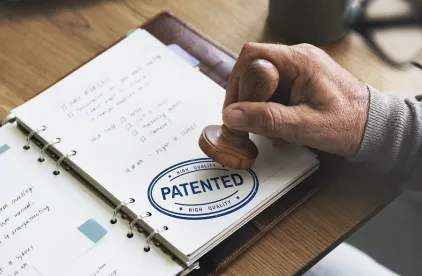Addressing the issue of whether a particular case was “exceptional” because plaintiff’s inventorship challenge failed in part because of admissions from plaintiff’s witness, the US Court of Appeals for the Federal Circuit upheld the district court’s decision that the case was not exceptional. University of Utah v. Max-Planck-Gesellschaft, Case No. 16-1336 (Fed. Cir., Mar. 23, 2017) (Reyna, J). In contrast, just six days earlier, the Federal Circuit affirmed a district court’s finding of an exceptional case where the plaintiff’s infringement suit failed in large part because of plaintiff’s own witnesses and evidence. Bayer Cropscience AG v. Dow Agrosciences LLC, Case No. 2015-1954 (Fed. Cir., Mar. 17, 2017) (Stoll, J).
In Max-Planck, the Federal Circuit summarized the standard for finding a case “exceptional” under Octane Fitness (IP Update, Vol. 17, No. 5): “[a]n exceptional case ‘is simply one that stands out from others with respect to the substantive strength of a party’s litigating position . . . or the unreasonable manner in which the case was litigated.’” Pertinent factors may include “subjective bad faith or exceptionally meritless claims . . . frivolousness, motivation, objective unreasonableness of a case’s factual or legal components, and the need in particular circumstances to advance considerations of compensation and deterrence.” In general, the case must “set itself apart from mine-run cases” such that a fee award is warranted. The district court must “make exceptional case determinations on a case-by-case basis, considering the totality of the circumstances.”
The University of Utah sued to correct inventorship of a series of patents dealing with RNA interference. Utah argued that one of its scientists, Dr. Bass, should be named as an inventor. During deposition, Dr. Bass made a series of admissions that seriously undercut Utah’s inventorship arguments. The district court granted summary judgment in favor of Max-Planck.
Max-Planck sought attorneys’ fees, but the district court denied the motion, finding that the case was not exceptional. The district court concluded that “[a]lthough Utah may have been asking for pie in the sky, that does not differentiate this case from most patent cases.” Max-Planck appealed. The Federal Circuit affirmed the district court’s decision because, while “the district court agreed that Utah’s case was weak and based on insufficient evidentiary support, it provided a detailed explanation as to why it disagreed that Utah’s case was objectively unreasonable.”
In contrast, in Bayer the Federal Circuit affirmed the district court’s finding that the case was exceptional. Bayer sued Dow for infringement of patents covering genetically modified soybeans, but Dow responded that it had obtained a sublicense to the asserted patents from Bayer’s licensee. The case turned on whether the licensee could sublicense the patents for commercial use. The district court agreed with Dow and granted summary judgment.
The district court found the case exceptional because of “Bayer’s weak positions on the merits and litigation conduct.” Bayer appealed. The Federal Circuit affirmed, finding that the “district court’s opinion thoroughly demonstrated the totality-of-the-circumstances approach, detailing the reasons why Bayer’s positions on the merits and litigation tactics coalesced in making this case, in its judgment, exceptional.” The Federal Circuit also emphasized the district court’s explanation that “in its view, this case stood out from others because ‘[t]he positions Bayer took to support their contract interpretation arguments were directly contradicted by the record evidence Bayer had obtained through early discovery and Bayer should have made every effort to discover before filing suit.’”
Practice Note: Both Max-Planck and Bayer present somewhat similar facts in that both involve plaintiff losing on summary judgment where plaintiff’s evidence undercut its positions. In affirming the contrary conclusions reached by the district courts, the Federal Circuit emphasized the importance of a district court’s finding a case truly “exceptional”—in other words, that the case stood apart from the rest by such a wide margin as to warrant a fee award. This test is necessarily highly subjective and as such appears to give district courts a wide leeway in deciding whether a particular case is exceptional.
As both Max-Planck and Bayer demonstrate, the Federal Circuit will extend considerable deference to district courts when evaluating whether a case is exceptional. Accordingly, success at the district court level is crucial, because an adverse decision is unlikely to be overturned.




 />i
/>i

